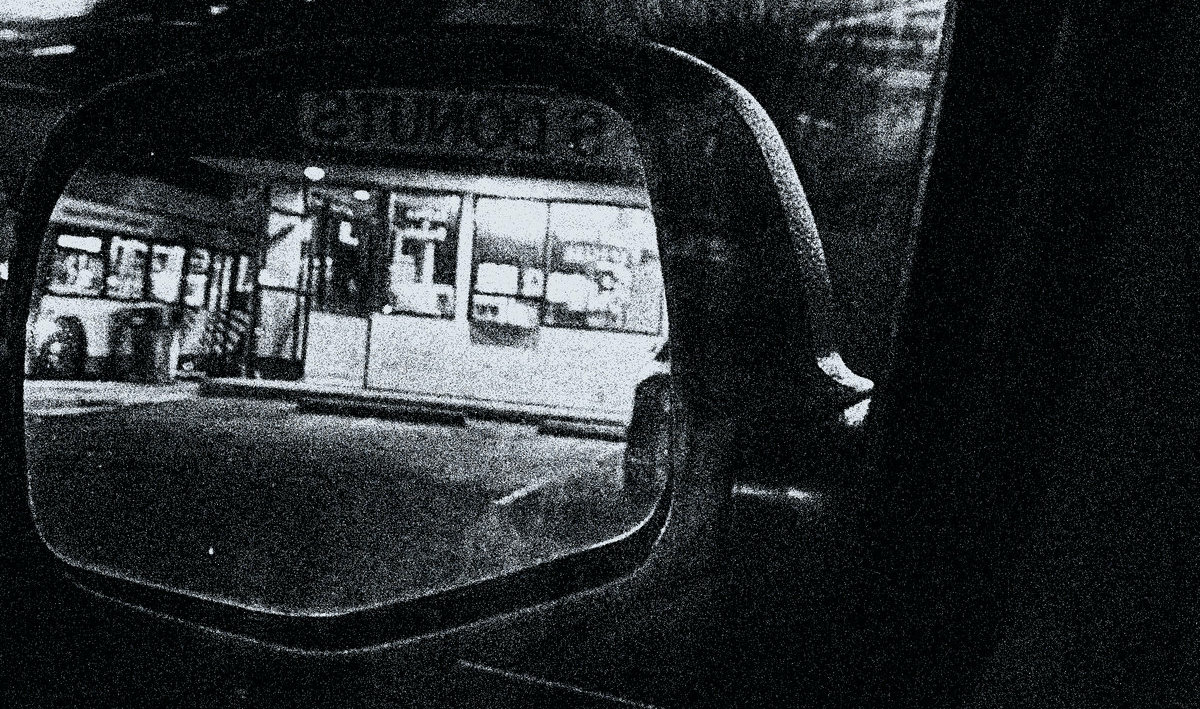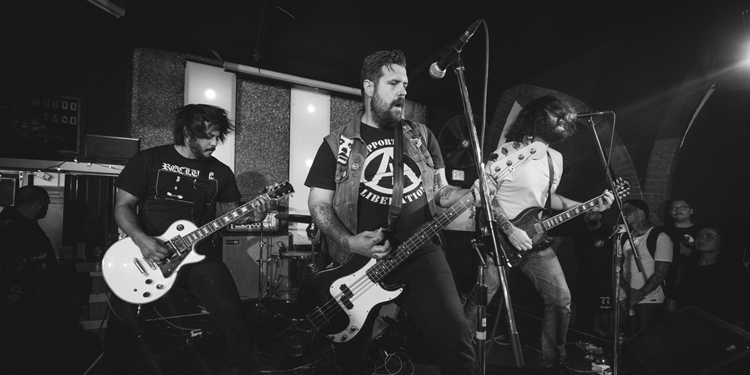Tourist earned the musical world’s attention with their 2020 release Domestic Scene, which was a sonic crossroads of Boston Hardcore, old school California powerviolence, and the blasting grind of the Pacific Northwest, all broiling together over hyper-literary lyrics shouted with a full chest.
Take Five, the band’s eagerly anticipated follow-up, features five songs that build on the unbreakable foundation of that release. While still a mélange of standard-bearers like Infest, Scapegoat, Iron Lung, Mind Eraser, Hatred Surge, Hellnation, and Crossed Out, one finds on this EP a band who has found their own voice. With stampeding blast beats, subterranean quakes of bass, tinnitus-inducing feedback, fleet-footed but stomping guitars, and gut-felt yelling, the listener feels as though they’ve peeked their head out of a sewer grate in the middle of a protest march that has erupted into a modern civil war. With Take Five, Tourist carves out a niche of hardcore for themselves, one whose rhythmic experimentation and sonic textures do justice to the album’s title, an homage to the brilliant jazz-composer Dave Brubeck.
Opener, “Never Come Morning,” is a feedback-laced teeth-breaker whose effect on the listener’s pulse is undeniable. Immediately, one can see how much license the band gives to each of its members to take up space. While they are not exactly trading fours as a jazz combo might, Tourist’s mentality of showcasing each instrument individually still sets them apart from their hardcore contemporaries. This is apparent as soon as the deep-sea gurgle of Joseph’s bass boils to the surface of Gabe’s feedback, just in time for the full-army assault of Justin’s blast beats, and vocalist Sam’s vocal-node-prognostic bellow.
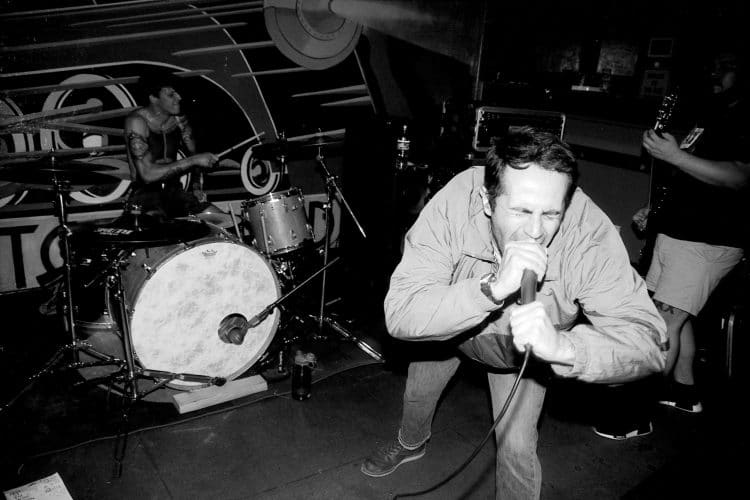
While the music on these tracks speaks for itself, Sam puts more care into writing rich, thoughtful lyrics, the likes of which English teachers might wallow in and pore over with their skeptical students. “Never Come Morning,” a reference to the Nelson Algren novel of the same name, is a song focusing on loss and redemption, on the power of hope, that features allusions to Fleetwood Mac’s “Sara” as well as James Baldwin’s Go Tell It On The Mountain, itself a reference to the Negro Spiritual.
“Sundowning” is an instant favorite, the kind of earworm that will have the listener taking a mace bell to aggressive architecture in their neighborhood during the move from twilight to dusk. Following an a-section of thirty-second-note blasts, the band’s b-section moves to a mid-tempo, eighth-note rhythm that feels especially and righteously angry. Through spit and foam, over lamentations of feedback and tumbling bass on pulse with the drums, Sam decries the class crisis in a kleptocracy, all the while nodding to the anarchism of Emma Goldman, the anti-colonialism of Frantz Fanon, and the transcendentalist civil disobedience of Henry David Thoreau. Opening with what appears to be a reference to Sons of Anarchy, the song ends with the an ambiguous statement about the promises made by our very country: Is the American Dream eluding us, or is it deluding us?
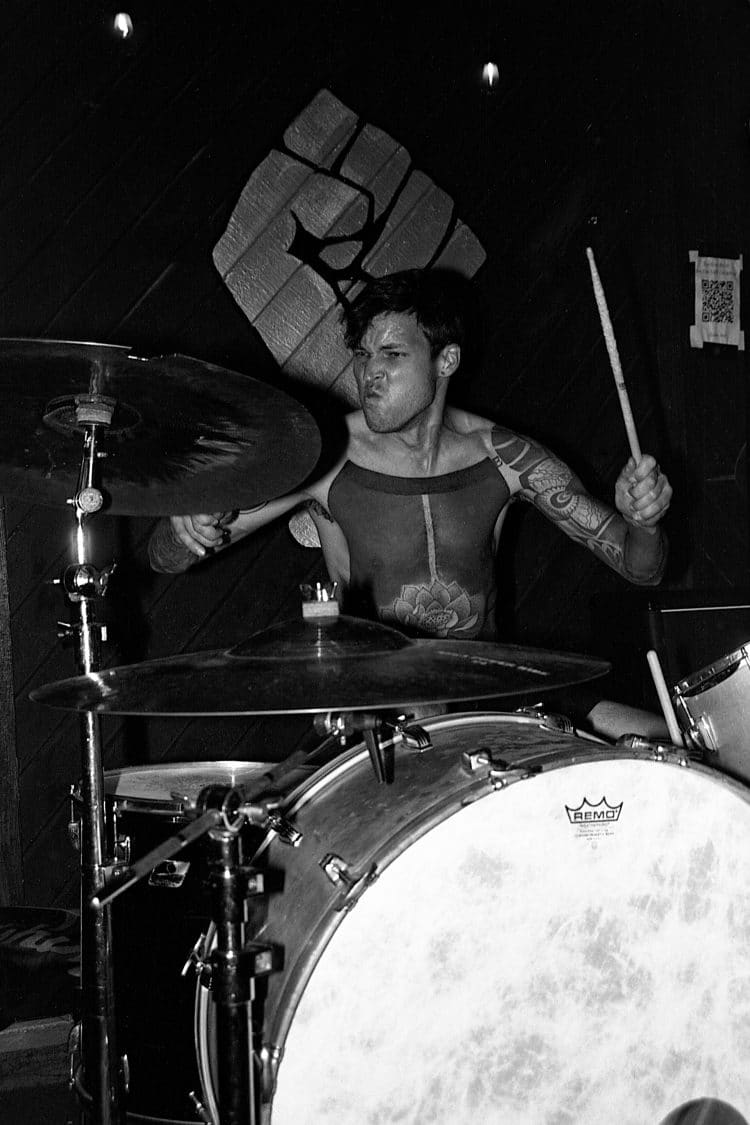
“Clown World” meditates on the absurdity and apparent meaninglessness of everyday life by invoking circus motifs of clowns and a hall of mirrors, and as art is meant to hold a mirror up to society, Tourist is showing just how distorted our values and, ultimately, our existence has become. With grinding sections interrupted by overlaid slower triplets, the polyrhythmic pace of the piece gives a dizzying, disorienting feel. In an increasingly ridiculous modern world that makes each thinking person feel foolish, the reference to the late, great Stephen Sondheim’s “Send in the Clowns” is especially apt.
The title “These Foolish Things”–one associated with the classic renditions by Bing Crosby, Nat King Cole, Ella Fitzgerald, Etta James, Billie Holiday, and Sam Cooke–belies the proto-human ferocity of Tourist’s track of the same name. A depth-charge to the limbic system, the fastcore intro quickly gives way to a ground-punching mid-tempo breakdown fortified by the power of resentment and heartbreak and by the even greater power of personal growth and healing. Like the song that shares this title, it’s a song about the force with which memories can influence our presence, but where the older song surrenders to the strength of the past, this one reclaims it.
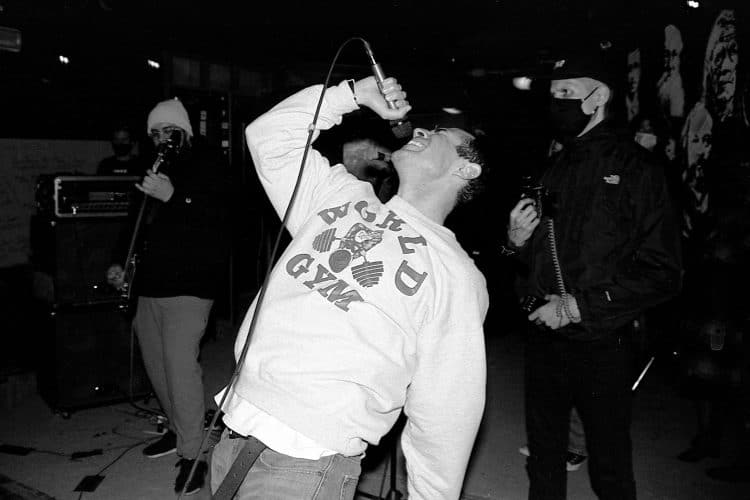
“Lonely At The Top,” a possible tip of the hat to the brilliant Randy Newman song, is a shirt-ripping, barn-burning closer that manages to be potent enough to end the white-hot ferocity of the album with even more intensity. An exhortation to the listener to tap into their own immense potential despite any environmental or even cosmic obstacles, the song incorporates a metaphor similar to that in Tupac’s “The Rose That Grew From Concrete” while its poetry is funneled through a No Man’s Slave-style fury factory. As a concluding statement to an album uncommonly rich in musical ingenuity and thematic depth, Take Five‘s lyric sheet ends with a quatrain invoking the Divine Sarah Vaughan’s “Be Anything (but Be Mine)”:
“Climb to the top of the ladder/Be master of all you survey/Fail and it still doesn’t matter/If you love…”
Tourist vocalist Sam was kind enough to offer some thoughts on their brilliant EP.
First, can you introduce the members of the band and any other projects they have?
Tourist is Sam [myself], Gabe (guitar), Justin (drums), and Joseph (bass). Justin is the only one currently playing in another active band: a doom act called Deep Sea Thunder Beast. Besides Tourist, we all have side projects, a couple of which will have a demo out sometime this year.
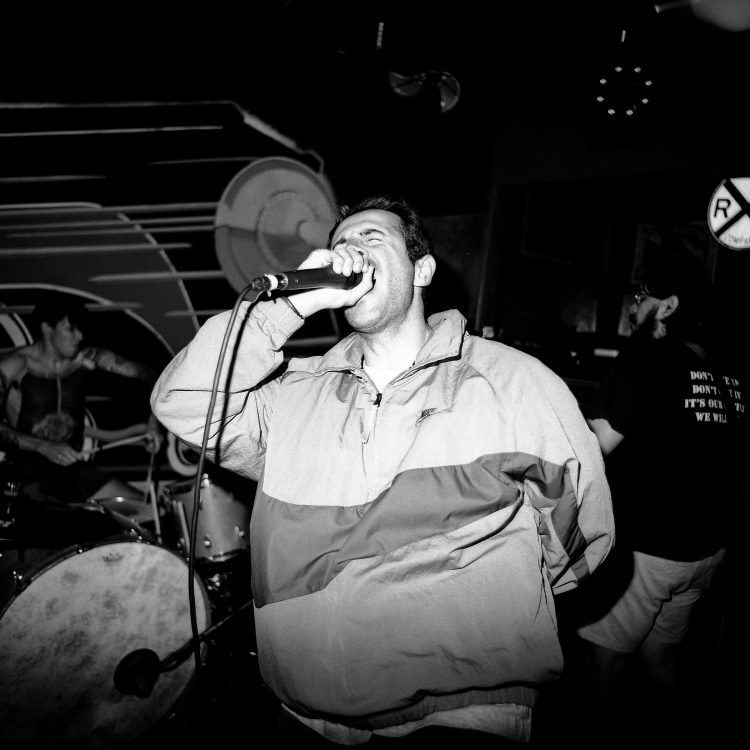
Domestic Scene received so much praise. What were your goals in creating a follow up? Were there new things you tried to incorporate?
At least two songs from Take Five can be considered rough outtakes from Domestic Scene. They didn’t make the cut because they didn’t fit sonically or thematically with that release, but they’ve existed as song ideas for a while. We liked those songs enough to release them sometime, so we repurposed and polished them up, and put together three new songs to complete the release. Recording five songs and naming the EP Take Five were deliberate decisions from the start.
Rather than trying new things for this particular album, we doubled down on “our sound” and tried to capture what we like most about our live set: the gnarly feedback and whammy action, deep-fried bass, the blasts on the crash, the closed hi-hat grooves, and especially the tribal tom sections.
Take Five is also the first release that features the four of us tracking our respective parts, so it is by far the most true-to-form Tourist offering. Domestic Scene served as our introduction, and Take Five is where we fully came into our own.
Can you describe the writing process for Take Five? Was writing a shorter release different from writing The World is Ours or Domestic Scene?
We’re our own harshest critics, so the calculus behind a shorter release was to trim down the fat and focus on execution. The World Is Ours was completely its own thing in terms of writing. We released that prior to Justin and Joseph joining, and though it hinted at the direction Tourist would take, to my ear, more than half of those songs lack confidence and definition. It was just me and Gabe throwing a bunch of ideas together and jamming them in my garage until it was time to track them. I took over almost all creative control since Domestic Scene. I write and demo everything, so when we practice, we have mostly fleshed out songs on which to build. We’ll jam them out a few times, edit or scrap as we see fit, and fine tune until the very end. The amount of thought and planning behind these minute-long songs has ultimately made us more discerning musicians, and certainly better prepared both live and on record.
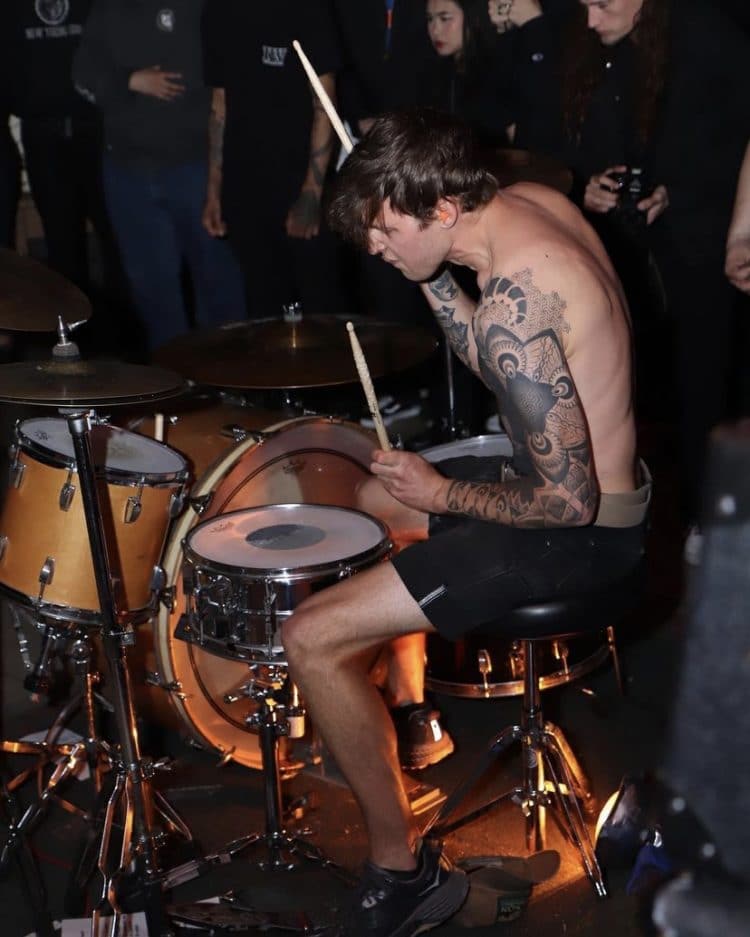
What were major musical influences for this release?
We’re more aware of what Tourist is now than before, so the people we involve in our records directly points to our influences. We’ve worked with Alex (Jacobelli) for all our releases, not just for his expertise and gear, but because we’re genuine fans of his creative output through the years, namely Lewd Acts and its lesser known offshoot, Griever.
From the time we began preparing this release, we knew we wanted to work with Chris Corry and Arthur Rizk in any capacity. We’re lucky and honored we got to work with both.
When we were exchanging emails with CC regarding mixing, we mentioned two records he personally had a hand in: the Mind Eraser Prodigal Son 7” (we tried to replicate the bass tone and drum mix from this 7”), and the Brutal Supremacy compilation.
Similarly, when we were exchanging emails with Arthur Rizk, we mentioned Blacklisted, Cold World, or any DFJ vehicle as inspiration for dynamics and scale. He went from engineering and producing the latest Kreator record to working on our songs, which is insane to think about and extremely humbling.
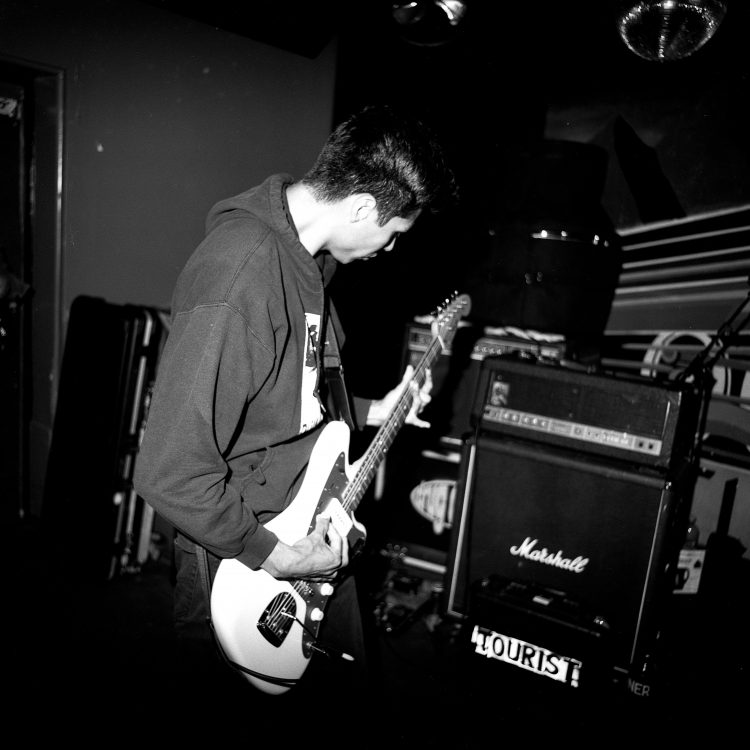
The lyrics on Tourist songs are unique and especially poetic. Where does the inspiration for the lyrical content and the lyrical form come from?
Our records have an overarching theme, and the lyrics sketch it out. Generally, they’re reflections or observations of my life and the people in it. They’re also very referential: if it wasn’t obvious before, a lot of what I’m reading or listening to during a given period seeps through.
I got more esoteric in my writing with Take Five because it felt like the music called for it, but at its core, it’s a record about experiencing failure, frustration, or loss without succumbing to any of it, and moving forward.
A quote I revisit often which encapsulates this nicely is from an essay in James Baldwin’s Nobody Knows My Name. “It is only when a man is able, without bitterness or self-pity, to surrender a dream he has long possessed that he is set free – he has set himself free – for higher dreams, for greater privileges.”
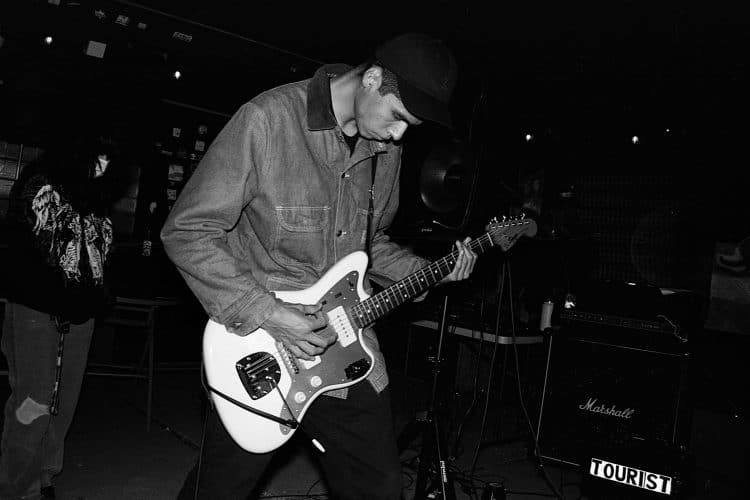
How have the events of the last two years influenced and affected Tourist?
This wasn’t exclusive to Tourist, but it’s fair to say we all experienced breakups, breakdowns, and most importantly, breakthroughs over the past two years. Watching careers and relationships peter out while the world collectively lost its bearings gave us necessary pause and perspective, but also intent.
Though we were mostly focusing on releasing Take Five last year, we simultaneously began writing more ambitious material that is in line with where we’re at now, individually and as a group. We’re excited about the direction of this band, and motivated by its potential.
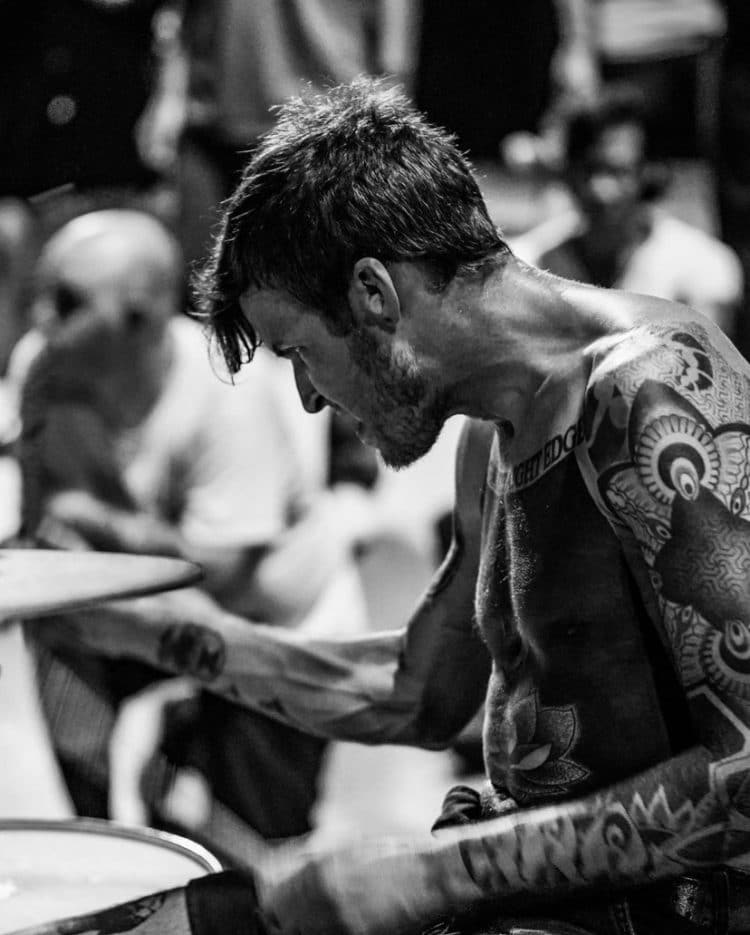
California has been leading the charge in hardcore for the last couple years. What is the musical climate like in San Diego right now? Are there lesser-known bands people should be listening to?
Few people outside of California are aware of just how large San Diego county is, so there are multiple subregional scenes with very distinct sensibilities. That said, what’s been heartening about more recent live shows is the amount of younger people attending and getting involved regardless of location. The most active local bands are all comprised of folks in their late 20s to mid 30s, ourselves included, so to see kids half our age picking up the mantle and running with it in different directions means the scene in San Diego won’t stagnate the way it has in the past.
With very few exceptions, the bands that immediately seek to break out of San Diego onto the larger national stage are the ones that hardly ever play or build a following in San Diego, whereas the bands that should break out never go very far or get their due. Knowing we can’t take live shows for granted anymore, we 3 hope attitudes change and we hope there’s a genuine push for unity and support among scenes in Southern California.
Among our contemporaries, we count Glean and Violencia [from Tijuana] as bands that should absolutely be on everybody’s radar. Local bands we also hope get wider recognition include Hex, Closedown, L.I.C.E., and Negative Blast.
What should people know about Tourist? About Take Five?
Tourist is finishing writing a full-length titled Spite that steps back and steps away from the blast beats. We intend to release a promo for it digitally and physically soon. We also hope to play new places through spring, summer, and fall this year.
Take Five is currently available in North America as a tape through us and Germinate Fanzine, and it will be available in Europe, also as a tape, through Coxinha Records.
Is there anything else you’d like to say?
Our friend Matt Ants runs Germinate Fanzine (he currently plays in Headcount, Government Clean-Up Plan, Closedown, and a dozen other semi-active bands). He’s been a big supporter of Tourist from the jump and when he offered to put out a physical release for Take Five, we took him up on it.
Fabian from Coxinha Records, based in Germany, did a small run of tapes for Domestic Scene and since then, whenever we teased or talked about releasing new material, we’d invariably get a message from Coxinha saying they were excited and ready to press it. It blows our minds that someone halfway around the world would invest time and money in us without knowing us personally, so we’re very grateful to them.
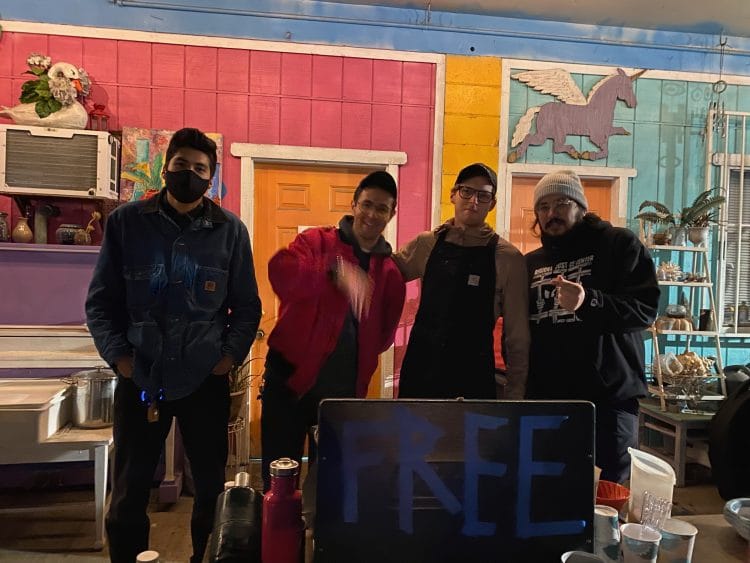
Photos by Dan Rawe, Becky DiGiglio, and Brandon Oleksy.
Take Five was engineered by Alex Jacobelli, mixed by Chris Corry, and mastered by Arthur Rizk.
It was recorded at Sunsick Studio.
Buy Take Five cassettes at Tourist’s bandcamp, at Germinate Fanzine, and at Coxinha Records.

